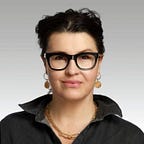The Fourth Grade Project
Want to know a culture? Spend a week with a 9-year-old
Artist Judy Gelles began The Fourth Grade Project while volunteering in a Philadelphia inner city school in 2008. A decade later, she’s photographed 300 schoolchildren from 16 schools in 10 countries. And she’s looking to expand her project even further.
Where did you get the idea for the project?
In 2008, I was assigned to the fourth grade to work with kids on their reading skills. The books had no connection to their lives at all.
I decided to ask them about their lives and came up with 3 questions:
Who do you live with?
What do you wish for?
What do you worry about?
When I wrote down their answers, they were able to read their stories back to me.
What happened next?
Their reading skills did improve.
I asked to photograph the kids and put their images up in the classroom. But the principal said I wasn’t allowed because of privacy rules in public schools.
She joked: you can photograph their backs, not their fronts.
A light bulb went off in my head and I realized this was going to turn into an art project — that’s now turned into a social justice project.
That was the first school.
Once I did that school, I realized it would be very interesting to try the same project at a totally different kind of school — an upscale private school.
The answers were like night and day. That’s when I realized I had a project. I began taking this around the world.
Why 9-year-olds?
If you want to know anything about a culture, spend a week with a 9-year-old.
They are sophisticated but they don’t censor yet. If you work with older children they start censoring. 9-year-olds are extremely honest.
What are some poignant memories from your travels?
The first [international] place I went to was China. The teacher said it was disrespectful to photograph from the back, and I must photograph from the front. Then I realized how different all these schools were going to be. I did both.
In St. Lucia, I found out that the children didn’t know what divorce meant. It’s a matriarchal society and most of the parents do not get married. The children all live in single parent homes with their mothers.
In Nicaragua, they’d never heard the words Muslim or Jew.
What else are you hoping to do with this project?
The plan is to create lesson plans based on the students’ stories, divided into themes and accessible to teachers all over the world. They’d be able to use these stories in the classroom.
9-year-olds will be learning from 9-year-olds. It will be very different from other curriculums.
The hope is to learn about the other, embrace the other, and become more tolerant.
Most schools are very homogeneous — this is a way to bring the world into the classroom.
